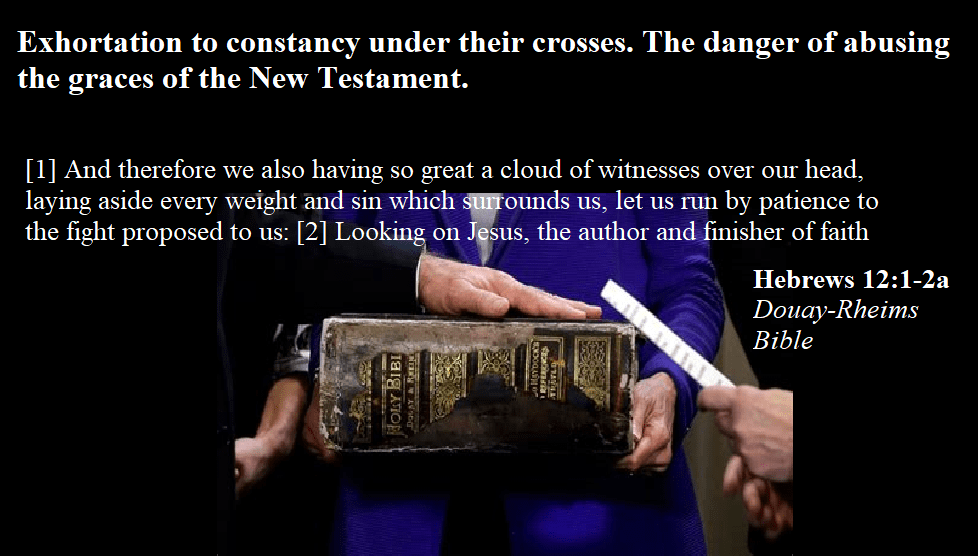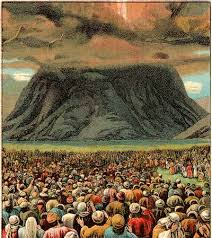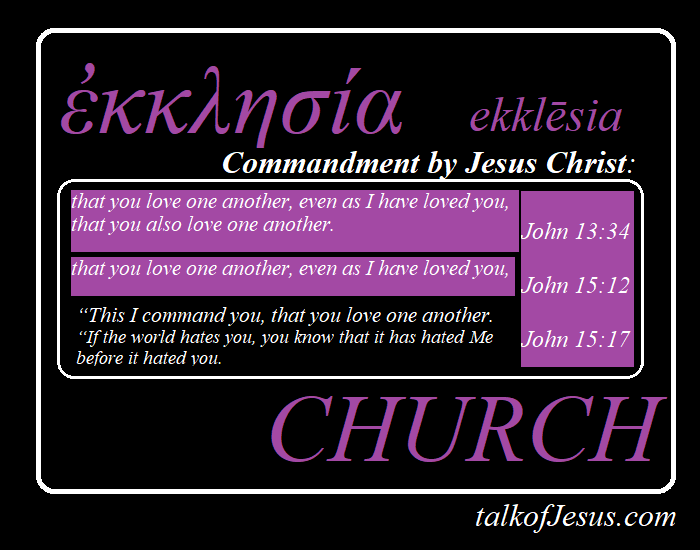Peter has just cautioned the church that judgment begins with God’s household. He encourages all the believers suffering for Christ to keep fervent in your love. And in an appropriate exhortation for leadership of the family Peter urges wives to be submissive to your own husbands. Now the Apostle specifically exhorts the elders of the church.
Church Leadership
Before we address this divisive denominationalized topic written to a first century church in terms of today’s church, let’s begin with a contemporized paraphrase of these verses from the first letter of Peter by J.B. Phillips.
A word to your leaders
5 1-4 Now may I who am myself an elder say a word to you my fellow-elders? I speak as one who actually saw Christ suffer, and as one who will share with you the glories that are to be unfolded to us. I urge you then to see that your “flock of God” is properly fed and cared for. Accept the responsibility of looking after them willingly and not because you feel you can’t get out of it, doing your work not for what you can make, but because you are really concerned for their well-being. You should aim not at being “little tin gods” but as examples of Christian living in the eyes of the flock committed to your charge. And then, when the chief shepherd reveals himself, you will receive that crown of glory which cannot fade.
Who is an Elder?
I am not an elder of my church. Is he writing to me?
Certainly Peter will follow this public exhortation with expected application to those humble members of their churches. And in a larger sense, he writes not to an individual group of Christ worshipers, but to the church as the whole body of Christ.
Peter is not their Pastor, Priest, teacher or even a member of most churches to whom he writes, yet he clearly claims his authority “as your fellow elder.”
Before we address this position which Peter claims from the greek word which he uses, συμπρεσβύτερος [sympresbyteros], let’s look back a bit to God’s presence before elders.
Elders of the Hebrews
We first hear of the elders in Genesis 50, transition in the Books of Moses to the exodus of a captive Hebrew people enslaved in Egypt.
So Joseph went up to bury his father, and with him went up all the servants of Pharaoh, the elders of his household and all the elders of the land of Egypt, and all the household of Joseph and his brothers and his father’s household; they left only their little ones and their flocks and their herds in the land of Goshen. – Genesis 50:7-8 NASB
Scripture refers to both ‘the elders of his [Joseph’s] household and all the elders of the land.
Elders – zaqen – זָקֵן
It is a description of older men, or men with familial and community authority. The LORD gives authority over families (households) and those with authority will be called before the LORD to account for those over whom they have authority. (We 21st century ‘christians,’ even Jews often struggle with such authority delegated from Almighty God.)
God, furthermore, said to Moses, “Thus you shall say to the sons of Israel, ‘The LORD, the God of your fathers, the God of Abraham, the God of Isaac, and the God of Jacob, has sent me to you.’ This is My name forever, and this is My memorial-name to all generations.
“Go and gather the elders of Israel together and say to them, ‘The LORD, the God of your fathers, the God of Abraham, Isaac and Jacob, has appeared to me, saying,
“I am indeed concerned about you and what has been done to you in Egypt.
Exodus 3:15-16
How like a loving Father does the LORD show concern for those who worship Him.
Yet Moses asked the LORD for help in governing these difficult people. (Aren’t we, the church, just as rebellious when it comes to Authority?) The LORD gave us elders to judge our own family, the followers of God.
וְאֶל־מֹשֶׁ֨ה אָמַ֜ר עֲלֵ֣ה אֶל־יְהוָ֗ה אַתָּה֙ וְאַהֲרֹן֙ נָדָ֣ב וַאֲבִיה֔וּא וְשִׁבְעִ֖ים מִזִּקְנֵ֣י יִשְׂרָאֵ֑ל וְהִשְׁתַּחֲוִיתֶ֖ם מֵרָחֹֽק׃
Then He said to Moses, “Come up to the Lord, you and Aaron, Nadab and Abihu and seventy of the elders of Israel, and you shall worship at a distance.
Exodus 24:1 WLC [Hebrew]; NASB [English]
4 Moses wrote down all the words of the Lord…
7 Then he took the book of the covenant and read it in the hearing of the people; and they said, “All that the Lord has spoken we will do, and we will be obedient!” …
9 Then Moses went up with Aaron, Nadab and Abihu, and seventy of the elders of Israel and they saw the God of Israel; and under His feet there appeared to be a pavement of sapphire, as clear as the sky itself. Yet He did not stretch out His hand against the nobles of the sons of Israel; and they saw God, and they ate and drank.
Moses prepares the followers with him, interceding as their Priest returning them to holiness (or pureness), making sacrifices and covenants before God. The LORD shows mercy to the sinful leaders of the Hebrews. Moses intercedes for them, then they see the Lord God!
12 Now the Lord said to Moses,
“Come up to Me on the mountain and remain there, and I will give you the stone tablets with the law and the commandment which I have written for their instruction.”
13 So Moses arose with Joshua his servant, and Moses went up to the mountain of God. But to the elders he said,
“Wait here for us until we return to you…
Elders of the cities and other lands
The leadership of elders is accepted practice and culture at every level from family to city, from state or province to nation. Eldership is not exclusive to the Hebrews, Israel or later Judah. Neither is our tendency toward personal freedom and resistance to any authority by man or God.
- Then the elders of the congregation shall lay their hands on the head of the bull before the LORD, and the bull shall be slain before the LORD. – Leviticus 4:15
- The LORD therefore said to Moses, “Gather for Me seventy men from the elders of Israel, whom you know to be the elders of the people and their officers and bring them to the tent of meeting, and let them take their stand there with you. Numbers 11:16
- So the elders of Moab and the elders of Midian departed with the fees for divination in their hand; and they came to Balaam and repeated Balak’s words to him. Numbers 22:7
- then the elders of his city shall send and take him from there and deliver him into the hand of the avenger of blood, that he may die. Deuteronomy 19:12
The LAW of the Hebrews is a higher Law from the Lord God. Furthermore, the Hebrews agreed to the Commandments of the LORD. Yet all sin and fall short of the Law.
Moses had saved the Hebrews from Egypt, but he could not save them from their sin.
Elders did not lead a people who just wandered in and out of the land or the Hebrew tent of meeting.
Joshua, David, judges, prophets, elders of every generation — all are called by the Authority of God. The Hebrews they led had agreed to be led by the LORD.
9 So Moses wrote this law and gave it to the priests, the sons of Levi who carried the ark of the covenant of the Lord, and to all the elders of Israel…
12 Assemble the people, the men and the women and children and the alien who is in your town, so that they may hear and learn and fear the Lord your God, and be careful to observe all the words of this law.
26 “Take this book of the law and place it beside the ark of the covenant of the Lord your God, that it may remain there as a witness against you… Assemble to me all the elders of your tribes and your officers, that I may speak these words in their hearing and call the heavens and the earth to witness against them.
Deuteronomy 31:26,28 NASB
The presence of the LORD has scattered them,
He will not continue to regard them;
They did not honor the priests,
They did not favor the elders.
Lamentations 4:16 of Jeremiah when Jerusalem fell & the Temple was burned ~567 BC
Church Elders of the New Testament
Elders – presbyteros – πρεσβύτερος
Strong’s Definitions
πρεσβύτερος presbýteros, pres-boo’-ter-os; comparative of πρέσβυς présbys (elderly); older; as noun, a senior; specially, an Israelite Sanhedrist (also figuratively, member of the celestial council) or Christian “presbyter”:—elder(-est), old.
A general description of elders in the Church would be: among the Christians, those who presided over the assemblies (or churches) The NT uses the term bishop, elders, and presbyters interchangeably.
Although Bishops and Archbishops, Pastors and Popes may be called elders of the church, authority from the Lord is not exclusive to any. With no regard to title or station, Christ, the Head of the body of the church will judge all.
Peter, then, addresses the elders of the church in terms of their own behavior as examples of Christ Jesus and responsibility to their own small flocks as Peter well-knew Jesus had shown to the Twelve Disciples.
I exhort the elders among you as a fellow elder and witness to the sufferings of Christ, as well as one who shares in the glory about to be revealed:
Peter addresses these men as a fellow elder. He is not of their church or lording it over their church, but addressing them as a humble brother encouraging their leaders.
Christians tend to look askance at the Jewish context of elders because of the Gospel record of the elders challenging Jesus. However Peter does not challenge any of the elders as if he is one who knows better or as even as an Apostle of higher authority.
2 Shepherd God’s flock among you, not overseeing out of compulsion but willingly, as God would have you; not out of greed for money but eagerly; 3 not lording it over those entrusted to you, but being examples to the flock.
Peter then addresses our example of Jesus.
4 And when the chief Shepherd appears, you will receive the unfading crown of glory.
Yes, Jesus IS resurrected, as witnessed by Peter, who knows directly from the Lord that Christ will give glory to those who serve Him faithfully.
5 In the same way, you who are younger, be subject to the elders.
Are you younger than the elders of your church? Of course. Therefore listen to their wise leadership.
Humbly subject yourselves to them as Christ subjected Himself to the Father, even suffering death on a cross for our sins.
All of you clothe yourselves with humility toward one another, because
God resists the proud
but gives grace to the humble.
Peter asks every saint of the church to clothe yourselves with humility toward all members of the body of Christ. He then quotes a familiar Proverb, memorized between father and son.
My son, don’t forget my teaching,
but let your heart keep my commands;
2 for they will bring you
many days, a full life, and well-being.
3 Never let loyalty and faithfulness leave you.
Tie them around your neck;
write them on the tablet of your heart.
4 Then you will find favor and high regard
with God and people.
5 Trust in the Lord with all your heart,
and do not rely on your own understanding;
6 in all your ways know him,
and he will make your paths straight.
7 Don’t be wise in your own eyes;
fear the Lord and turn away from evil…
33 The Lord’s curse is on the household of the wicked,
but he blesses the home of the righteous;
34 He mocks those who mock,
but gives grace to the humble.
35 The wise will inherit honor,
but he holds up fools to dishonor.
Conclusion
Peter concludes his letter advising this same humility which so often eluded him as a Disciple of Jesus. The Lord led with such humble gentleness and exemplary grace.
Peter advises the saints of Christ’s body not to become fools in your actions toward your brothers in Christ. And do not mock the fools of this passing world so filled with sin. The saints must become Christ-like in all ways.
Hebrew Scripture would have easily come to mind for these members of first century churches. Yet Peter’s exhortation applies aptly to you and to me.
Humble yourselves, therefore, under the mighty hand of God, so that he may exalt you at the proper time, casting all your cares on him, because he cares about you.
1 Peter 5:6-7
‘You shall remember that you were a slave in the land of Egypt, and the LORD your God brought you out of there by a mighty hand and by an outstretched arm; therefore the LORD your God commanded you to observe the sabbath day. – Deuteronomy 5:15 NASB
Now the LORD said to Joshua, “This day I will begin to exalt you in the sight of all Israel, that they may know that just as I have been with Moses, I will be with you. – Joshua 3:7
Perhaps from this excerpt below we might look into the hearts of Peter’s persecuted first century readers of his letter, lifted up by a song of their familiar worship.
A Psalm of David.
Save me, O God,
For the waters have threatened my life…
I am weary with my crying; my throat is parched;
My eyes fail while I wait for my God…
Because for Your sake I have borne reproach;
Dishonor has covered my face…
But as for me, my prayer is to You, O LORD, at an acceptable time;
O God, in the greatness of Your lovingkindness,
Answer me with Your saving truth…
Oh draw near to my soul and redeem it;
Ransom me because of my enemies!
But I am afflicted and in pain;
May Your salvation, O God, set me securely on high.
I will praise the name of God with song
And magnify Him with thanksgiving…
The humble have seen it and are glad;
You who seek God, let your heart revive.
Resist temptation
8 Be sober-minded, be alert.
Your adversary the devil is prowling around like a roaring lion, looking for anyone he can devour. 9 Resist him, firm in the faith, knowing that the same kind of sufferings are being experienced by your fellow believers throughout the world.
Did you know that you are not the only one who suffers for Christ?
Do you acknowledge the same powers and principalities who opposed Jesus also tempt you?
Not all angels and spirits bring good news from God. Some heavenly messengers to mortals follow the fallen and deceitful angels of darkness and rebellion against the Lord God. If they oppose Jesus and you suffer for His Name, certainly you will join other saints faithful to the Lord.
an Encouragement and Praise
10 The God of all grace, who called you to his eternal glory in Christ, will himself restore, establish, strengthen, and support you after you have suffered a little while.
11 To him be dominion forever. Amen.
a Postscript
Once Peter concludes his letter to the church exhorting its members and elders and closes with a general praise, we learn more about others who support the delivery of Peter’s good news to the churches.
12 Through Silvanus, a faithful brother (as I consider him), I have written to you briefly in order to encourage you and to testify that this is the true grace of God.
Peter likely dictated his letter to Silvanus, also known as Silas. Christian leaders like Silvanus and Timothy often worked with Peter or Paul. Letters to the church often express an understood Spirit-led leadership of like-minded elders of the church. We see this also in Peter’s next greeting.
13 She who is in Babylon, chosen together with you, sends you greetings, as does Mark, my son.
That is, John Mark, writer of the Gospel, much dictated by Peter and other Apostles.
Who is ‘she who is in Babylon?’ Some suggest that it may be a veiled reference to Peter’s wife, who accompanied him in his journeys to spread the Gospel. As to the true location of ‘Babylon,’ commentators differ. At least three viable locations seem possible, including Rome, a Roman outpost in Egypt and a city in the area of ancient Babylon (Mesopotamia).
Final greetings
14 Greet one another with a kiss of love.
φίλημα ἀγάπη – philēma agapē. It is the kiss with which, as a sign of fraternal affection, Christians were accustomed to welcome or dismiss their companions in the faith. And agapē love, demonstrable affection, good will, love, benevolence, brotherly love in Christ finds its root in phileō and philos – to treat affectionately or kindly, to welcome, befriend; one who associates familiarly with one, a companion.
This personal love of God becomes evident in every relationship between brothers of the body of Christ; that is, the Church of which He is the head.
Peace to all of you who are in Christ Jesus, Amen.
1 Peter 5:14b










